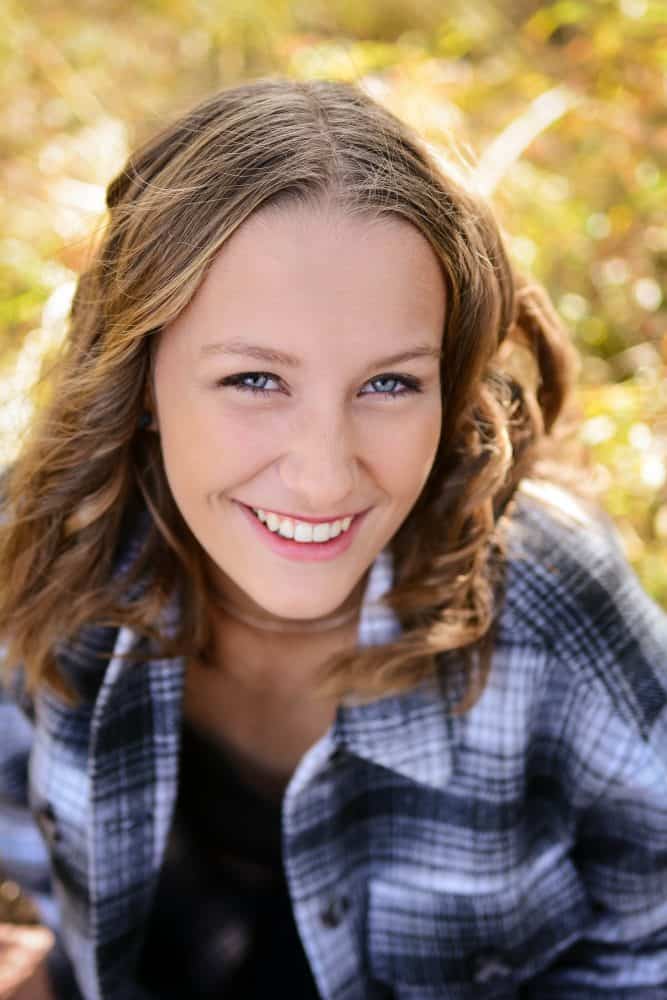Janelle Stolhandske-Dale, has grown up on a grain farm near Swift Current, Saskatchewan. She is currently in High School at the Swift Current Comprehensive High School. She is a very busy young lady raising animals and helping with farming activities, active member in 4-H, horse back riding and is a member of the senior Arden’s basketball team. She also has a part time job at Seed Solutions Seed Labs. Janelle hopes to attend post secondary in either agriculture or medicine. This bursary is appreciated and will be put to good use for her future education.
Here is Janelle’s winning essay:
How are young farmers using collaboration and/ or collective action to move towards more equitable food systems?
My name is Janelle Stolhandske-Dale, and I’m a fourth generation grain farmer. I look around at what four generations of hard work, blood, sweat, and tears has built on our 5,000 acre farm, and I feel pride and gratefulness to be a part of such an amazing opportunity. I fully recognize that the opportunities that I have and the operation that has been built, wouldn’t be possible without the collaboration of generations in my family. I have the opportunities that I do because my mom, grandparents, and great grandparents built and passed on the farm throughout the years instead of selling it. This puts me in a unique position compared to most people of my generation. I don’t have to start from scratch to build a prosperous business model that will support my future family and feed the world.
My grandparents talk about how communities would work together for the betterment of all. They helped build co-operatives, crown corporations such as SaskTel, The Canadian Wheat Board, and businesses like the Saskatchewan Wheat Pool. Farmers of the last four generations have benefited from the things my grandparents built, unfortunately newer generations have torn down some of these foundations. Many people in my mom’s and my generation benefited from the opportunities that collaboration built, but we are far enough removed from the origins that many of these people didn’t recognize the value these opportunities held and so they were happy to dismantle the collaborative efforts of generations before them.
The thinking I was raised with was, “we are stronger together than we are alone.” This thinking is the basis for collaboration and so on our farm we are constantly looking for ways to collaborate. We are members and patrons of our local Co-op for inputs and supplies on our farm. Unfortunately, collaboration on the marketing end of our farm, in terms of grain buyers is no longer an option for us. We do have a group of young farmers that shares information for pricing on both supply and sale levels. We also use this group to support each other if contracts can’t be met; this allows the profit to stay with the producers instead
of going to the grain companies. We feel that by sharing information with each other instead of competing against your neighbour, we will all benefit.
The task for one individual, or one small farm, to turn back the global thinking towards equity for all producers seems impossible, but you eat an elephant one bite at a time. My grandfather likes to say, “We have turned from a ‘we’ society to a ‘me’ society, and it is your job to figure out how to turn it back.” He is not wrong, and my generation has a long road ahead of it, but we take small steps towards this goal with all of our actions. My mom was recently appointed to the Western Standards Committee for the Canadian Grains Commission, and the reason she allowed her name to stand is she hopes to influence the grain grading system in favour of the farmer. She is one voice in all the farmers in Western Canada but now her voice carries a little more weight, and hopefully she can influence the system to be more equitable.
As I look to the future of farming, I know I will have challenges but I hope by maintaining the foundations of collaboration and equity, that have been part of the generations before me, I will be able to influence this industry for the better.

